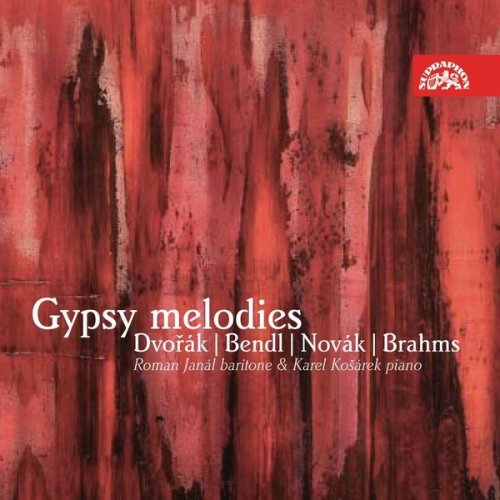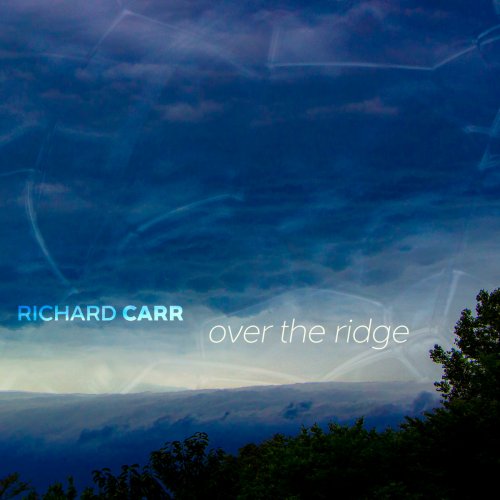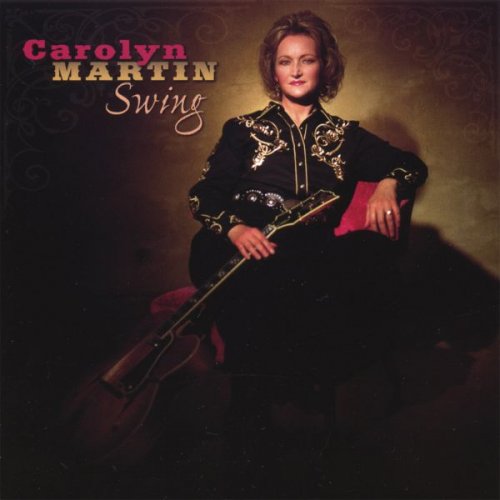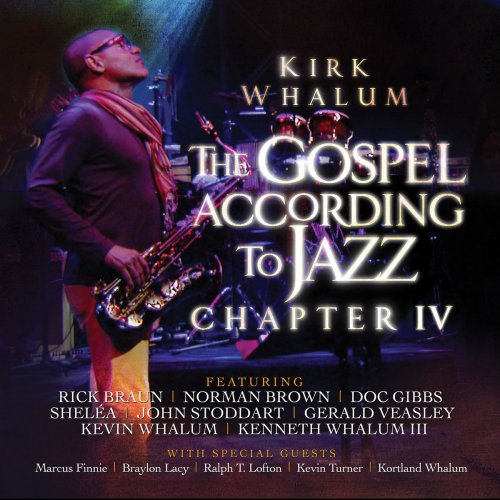Roman Janál, Karel Košárek - Gypsy Melodies: Bendl, Novák, Dvořák, Brahms (2005)

Artist: Roman Janál, Karel Košárek
Title: Gypsy Melodies: Bendl, Novák, Dvořák, Brahms
Year Of Release: 2005
Label: Supraphon
Genre: Classical
Quality: FLAC (tracks)
Total Time: 55:54
Total Size: 253 Mb
WebSite: Album Preview
Tracklist:Title: Gypsy Melodies: Bendl, Novák, Dvořák, Brahms
Year Of Release: 2005
Label: Supraphon
Genre: Classical
Quality: FLAC (tracks)
Total Time: 55:54
Total Size: 253 Mb
WebSite: Album Preview
01. Gypsy Melodies: No. 1, Hey, I Am but a Wild Gypsy. Allegro (00:01:44)
02. Gypsy Melodies: No. 2, Strange, but When My Old Mother Taught Me to Sing. Andantino (00:01:43)
03. Gypsy Melodies: No. 3, Jump, Gypsy. Allegro con fuoco (00:01:32)
04. Gypsy Melodies: No. 4, When the Heart of Gypsy Dies. Andante (00:01:39)
05. Gypsy Melodies: No. 5, Hey, in Music, Song. Allegro (00:01:09)
06. Gypsy Melodies: No. 6, One Drop of Water. Andante (00:02:02)
07. Gypsy Melodies: No. 7, The String Is Tuned. Allegretto (00:01:04)
08. Gypsy Melodies: No. 8, How My Triange. Andantino (00:02:08)
09. Gypsy Melodies: No. 9, The Woods Are Silent. Andante sensibile (00:01:35)
10. Gypsy Melodies: No. 10, You, My Dark Rose. Larghetto (00:02:00)
11. Gypsy Melodies: No. 11, Ring Out, Just Ring Out, Cimbalom. Con fuoco (00:01:45)
12. Gypsy Melodies: No. 12, Let the Boy Play on the Cimbalom. Feroce (00:00:55)
13. Gypsy Melodies: No. 13, When a Gypsy Dies. Andantino (00:01:26)
14. Gypsy Melodies: No. 14, Our Living Is Merry and Free! Allegro con brio (00:02:23)
15. Gypsy Melodies: No. 1, What Do They Want? Tempo giusto, vigoroso (00:01:16)
16. Gypsy Melodies: No. 2, The Masters Came to Recruit for the Army. Alla marcia (00:01:25)
17. Gypsy Melodies: No. 3, Under the Rosebush in the Meadow. Lento con tenerezza (00:02:42)
18. Gypsy Melodies: No. 4, Bagpipes Sound, Trill, Whisper. Giocoso, sciolto (00:01:21)
19. Gypsy Songs, Op. 55, B. 104: No. 1, Wide Sleeves. Pocco allegro (00:03:07)
20. Gypsy Songs, Op. 55, B. 104: No. 2, Hey! How My Triangle Rings Out so Sweetly. Allegro (00:01:13)
21. Gypsy Songs, Op. 55, B. 104: No. 3, The Woods Are Silent All Around. Moderato (00:03:13)
22. Gypsy Songs, Op. 55, B. 104: No. 4, Strange, but When My Old Mother Taught Me to Sing. Andante con moto (00:02:24)
23. Gypsy Songs, Op. 55, B. 104: No. 5, The String Is Tuned. Allegretto (00:01:14)
24. Gypsy Songs, Op. 55, B. 104: No. 6, Wide Sleeves. Pocco allegro (00:01:23)
25. Gypsy Songs, Op. 55, B. 104: No. 7, Give the Hawk a Cage. Allegro (00:01:55)
26. Zigeunerlieder, Op. 103: No. 1, He, Zigeuner (00:01:13)
27. Zigeunerlieder, Op. 103: No. 2, Hochgetürmte Rimaflut (00:01:18)
28. Zigeunerlieder, Op. 103: No. 3, Wisst ihr (00:01:47)
29. Zigeunerlieder, Op. 103: No. 4, Lieber Gott (00:01:18)
30. Zigeunerlieder, Op. 103: No. 5, Brauner Bursche (00:01:34)
31. Zigeunerlieder, Op. 103: No. 6, Röslein dreie (00:01:29)
32. Zigeunerlieder, Op. 103: No. 7, Kommt dir manchmal (00:01:35)
33. Zigeunerlieder, Op. 103: No. 8, Rote Abendwolken (00:01:22)
Total length: 00:55:54
Label: SUPRAPHON a.s.
Performers:
Roman Janal (baritone) & Karel Kosarek (piano)
These people always clear out when they hear of trouble," remarks Sherlock Holmes, "because they do not wish to be pestered by the police." The Gypsies or Romany people loomed large in the imagination of the newly urbanized middle class of the late nineteenth century, and the musical response was especially strong. Gypsy-inspired music has been a staple of concert programs for well over a century now, but focused explorations of the idea, such as that offered on Supraphon's Gypsy Melodies disc, have been rarer. It is no surprise that a Czech label has taken on this task and done it well; the Czech Republic has made consistent if not always successful strides toward the integration of its Romany minority.
Gypsy Melodies presents songs for baritone and piano by three Czech composers, plus the Gypsy Songs, Op. 103, of Brahms. The Brahms songs, whose inspiration came via Hungary, are tangential to the main thrust of the album, for the works by Karel Bendl, Vitezslav Novák, and Antonín Dvorák all set texts by the same author, Czech poet Adolf Heyduk. Thus the music here offers an ideal laboratory for close examination of how the compositional imagination responds to the same idea in different ways. The real find here may be the 14 songs of Bendl, which are the only ones that attempt to use features of Gypsy music as thoroughgoing structural features rather than as exotic decoration. Bendl selects Heyduk's shortest, most epigrammatic texts and combines them with little pianistic evocations of the sounds of Gypsy instrumental ensembles: "Hey! How my triangle rings out so sweetly/Like the song of a Gypsy when he sinks into death!/When he sinks into death/the triangle rings out/The end of song, dance, love, and lamentation." The piano fills the role of the triangle here, and the song provides a sharp little chill. Bendl is also more likely than Dvorák or Novák to alter his tonal language in the direction of half-steps and modal intervals that might evoke a non-Western musical language. Though he works on a much smaller scale, his songs bespeak the research into folk traditions that would animate Bartók and Stravinsky fully two generations later. Dvorák responds differently; his works are much less exotic-sounding and much more conventional harmonically, but he represents the presumed unbridled passion of Gypsy life with a rhythmic freedom that was becoming a characteristic part and parcel of his music. Novák's songs, a couple of decades younger than the other two, are the most "Romantic" of the bunch. Baritone Roman Janál handles some rather punishing lines competently -- one way these composers represented the wild side of the Gypsies was to push the baritone frequently into tenor range -- but much of the credit for the success of the recording goes to pianist Karel Kosárek, who carefully adapts his sound to the aims of each composer involved: his Brahms accompaniments are chunky and thick, while he brings out all of the subtle, exotic details in the Bendl. This is one of Supraphon's most innovative releases of recent years, and it is presented in style; it's well recorded, and even the photos of the two balding performers have a certain panache. Lovers of art song alert to new repertory directions must have this disc; it's also of interest to students interested in the Western representation of foreign peoples, and it might even provide useful material for basic music classes -- you are induced to listen very closely indeed as you strive to sense the reactions of these four composers to the Gypsies in their midst. One complaint: the texts are a bit confusing to follow because they're given four times in the liner notes, once in each language (Czech, English, German, and French). This was done probably because the Brahms songs are in German, not Czech, but the result is that it's hard to follow the original and the translation at the same time.
Gypsy Melodies presents songs for baritone and piano by three Czech composers, plus the Gypsy Songs, Op. 103, of Brahms. The Brahms songs, whose inspiration came via Hungary, are tangential to the main thrust of the album, for the works by Karel Bendl, Vitezslav Novák, and Antonín Dvorák all set texts by the same author, Czech poet Adolf Heyduk. Thus the music here offers an ideal laboratory for close examination of how the compositional imagination responds to the same idea in different ways. The real find here may be the 14 songs of Bendl, which are the only ones that attempt to use features of Gypsy music as thoroughgoing structural features rather than as exotic decoration. Bendl selects Heyduk's shortest, most epigrammatic texts and combines them with little pianistic evocations of the sounds of Gypsy instrumental ensembles: "Hey! How my triangle rings out so sweetly/Like the song of a Gypsy when he sinks into death!/When he sinks into death/the triangle rings out/The end of song, dance, love, and lamentation." The piano fills the role of the triangle here, and the song provides a sharp little chill. Bendl is also more likely than Dvorák or Novák to alter his tonal language in the direction of half-steps and modal intervals that might evoke a non-Western musical language. Though he works on a much smaller scale, his songs bespeak the research into folk traditions that would animate Bartók and Stravinsky fully two generations later. Dvorák responds differently; his works are much less exotic-sounding and much more conventional harmonically, but he represents the presumed unbridled passion of Gypsy life with a rhythmic freedom that was becoming a characteristic part and parcel of his music. Novák's songs, a couple of decades younger than the other two, are the most "Romantic" of the bunch. Baritone Roman Janál handles some rather punishing lines competently -- one way these composers represented the wild side of the Gypsies was to push the baritone frequently into tenor range -- but much of the credit for the success of the recording goes to pianist Karel Kosárek, who carefully adapts his sound to the aims of each composer involved: his Brahms accompaniments are chunky and thick, while he brings out all of the subtle, exotic details in the Bendl. This is one of Supraphon's most innovative releases of recent years, and it is presented in style; it's well recorded, and even the photos of the two balding performers have a certain panache. Lovers of art song alert to new repertory directions must have this disc; it's also of interest to students interested in the Western representation of foreign peoples, and it might even provide useful material for basic music classes -- you are induced to listen very closely indeed as you strive to sense the reactions of these four composers to the Gypsies in their midst. One complaint: the texts are a bit confusing to follow because they're given four times in the liner notes, once in each language (Czech, English, German, and French). This was done probably because the Brahms songs are in German, not Czech, but the result is that it's hard to follow the original and the translation at the same time.

![Rainer Brüninghaus, Kenny Wheeler, Jon Christensen & Brynjar Hoff - Freigeweht (1981/2025) [Hi-Res] Rainer Brüninghaus, Kenny Wheeler, Jon Christensen & Brynjar Hoff - Freigeweht (1981/2025) [Hi-Res]](https://www.dibpic.com/uploads/posts/2025-12/1766402111_cover.jpg)

![Lionel Hampton - Many Splendored Vibes (Remastered) (2022) [Hi-Res] Lionel Hampton - Many Splendored Vibes (Remastered) (2022) [Hi-Res]](https://www.dibpic.com/uploads/posts/2025-12/1766397160_lhsv500.jpg)


![Gianni Oddi - 3 (1974) [Vinyl] Gianni Oddi - 3 (1974) [Vinyl]](https://www.dibpic.com/uploads/posts/2025-12/1766644979_5.jpg)
![Colin James & The Little Big Band - Christmas (2007) [CD Rip] Colin James & The Little Big Band - Christmas (2007) [CD Rip]](https://www.dibpic.com/uploads/posts/2025-12/1766507683_folder.jpg)
